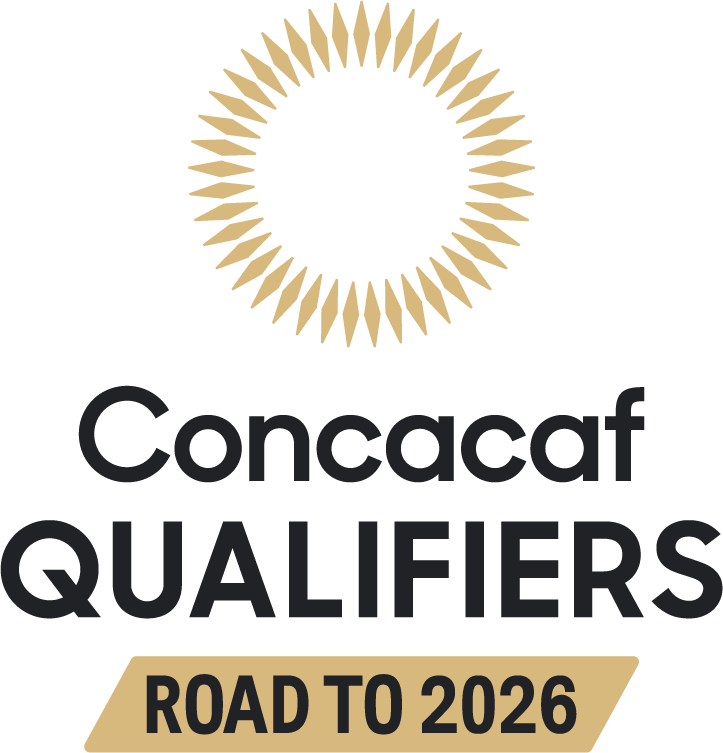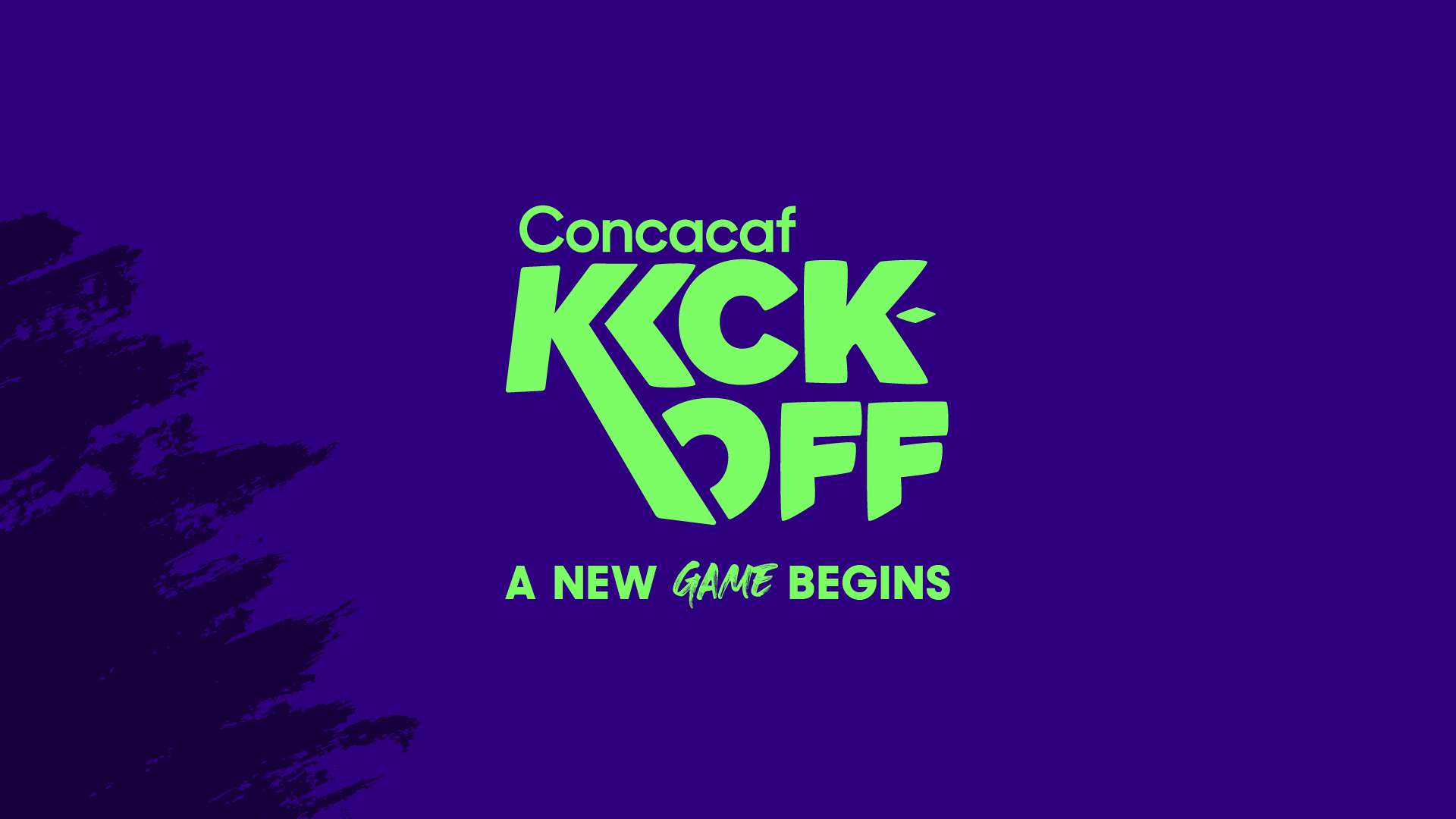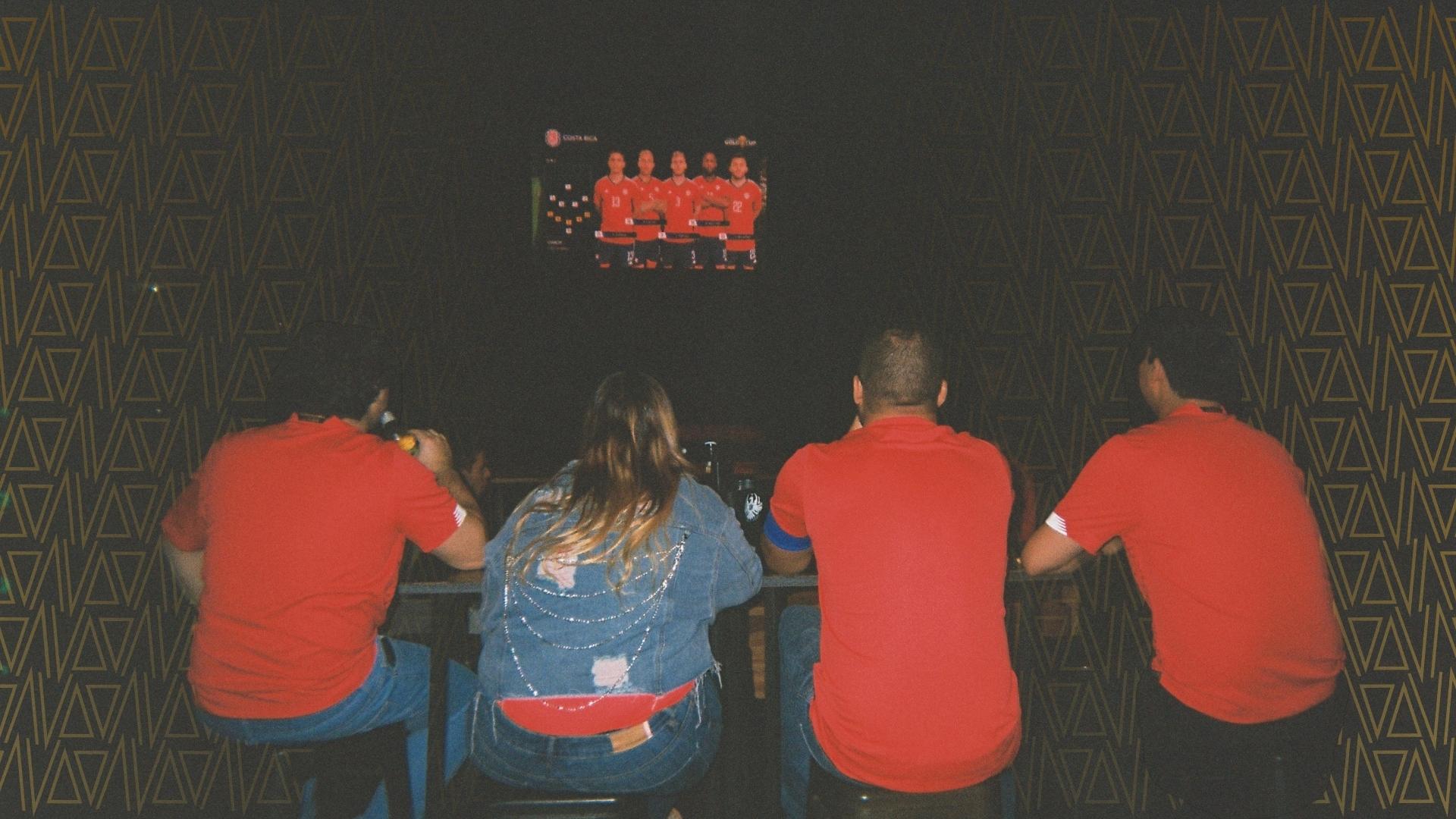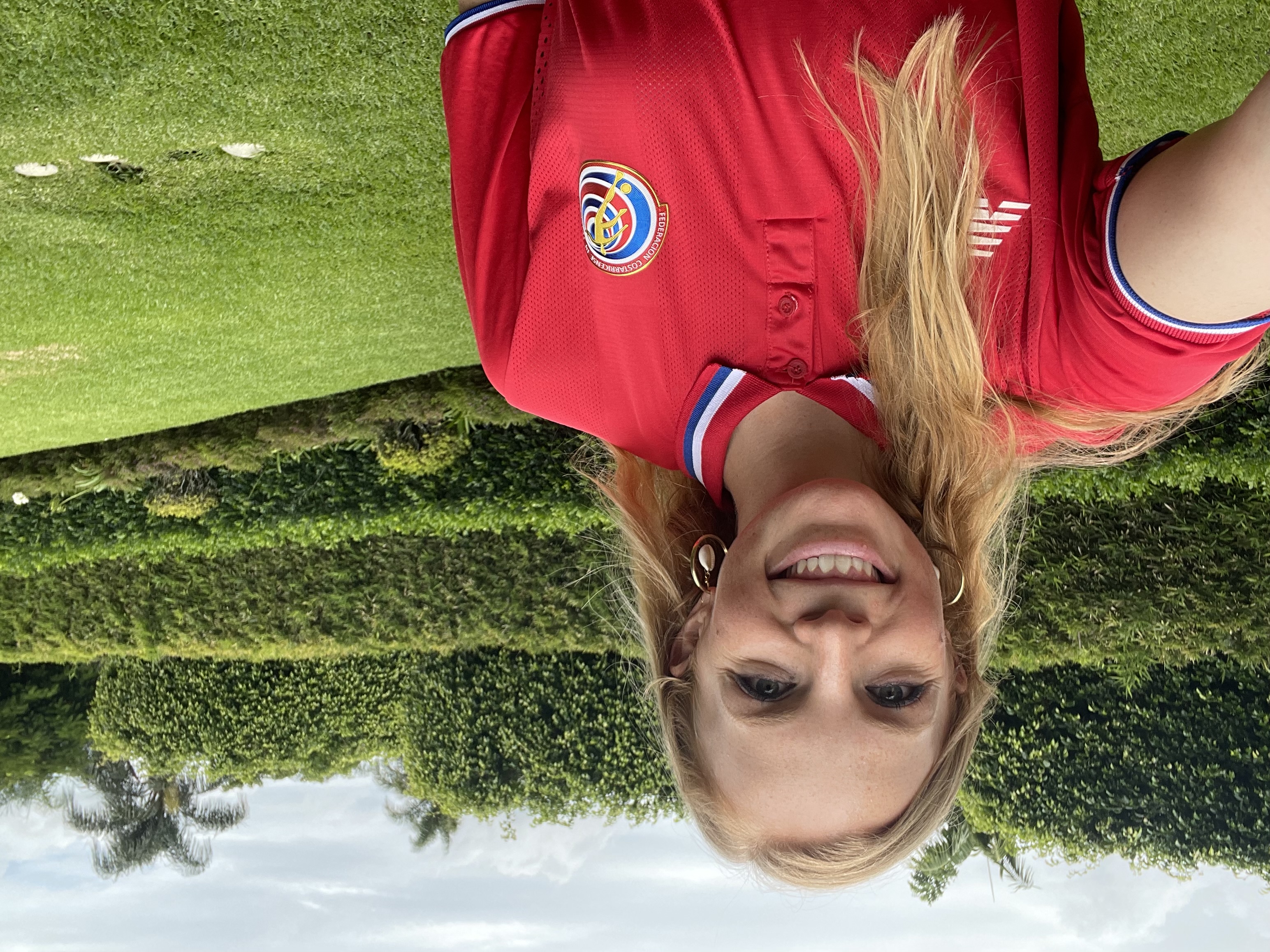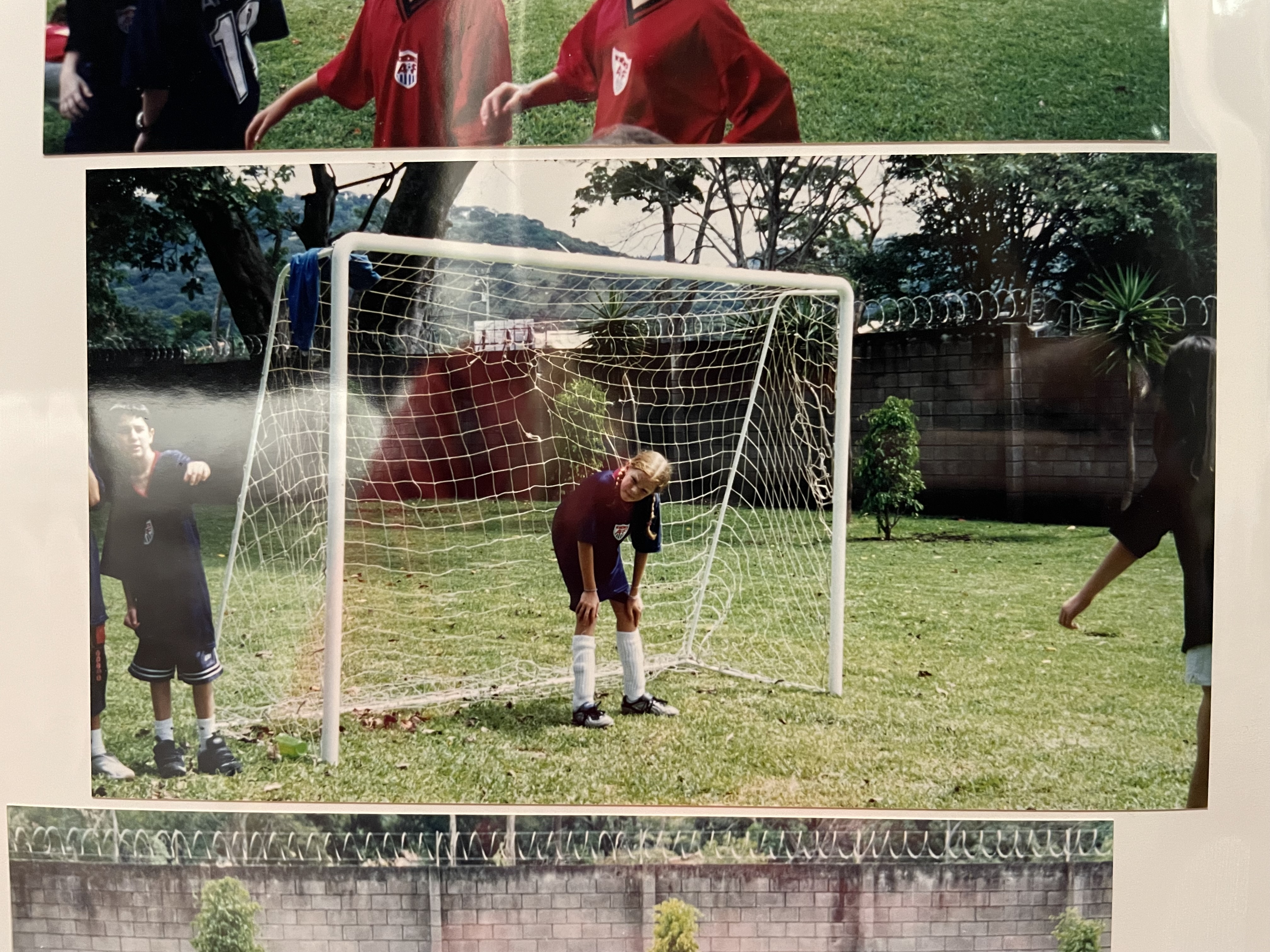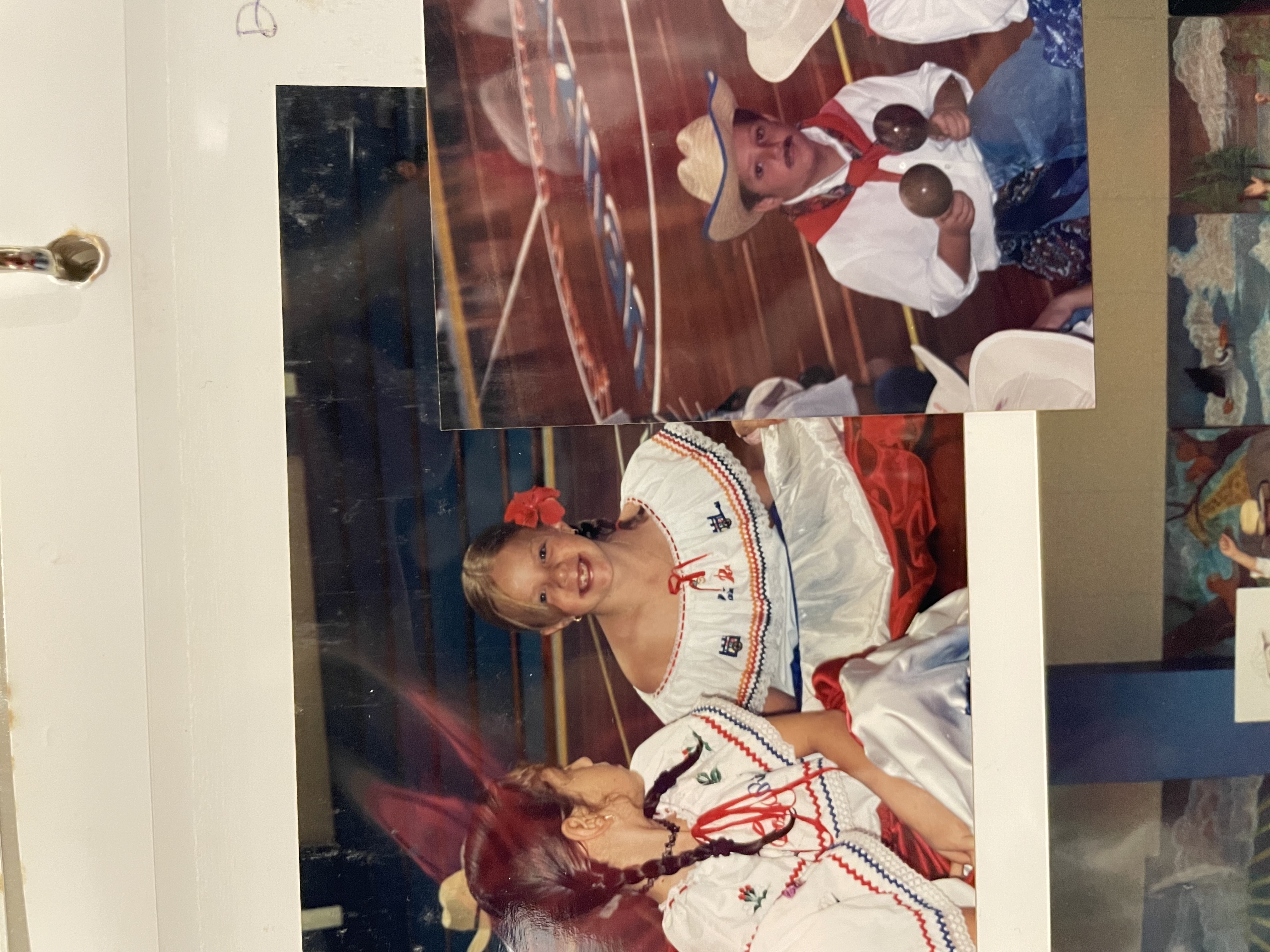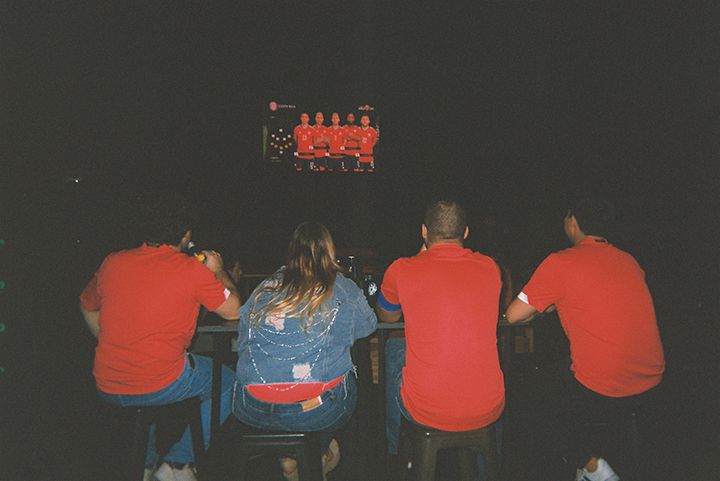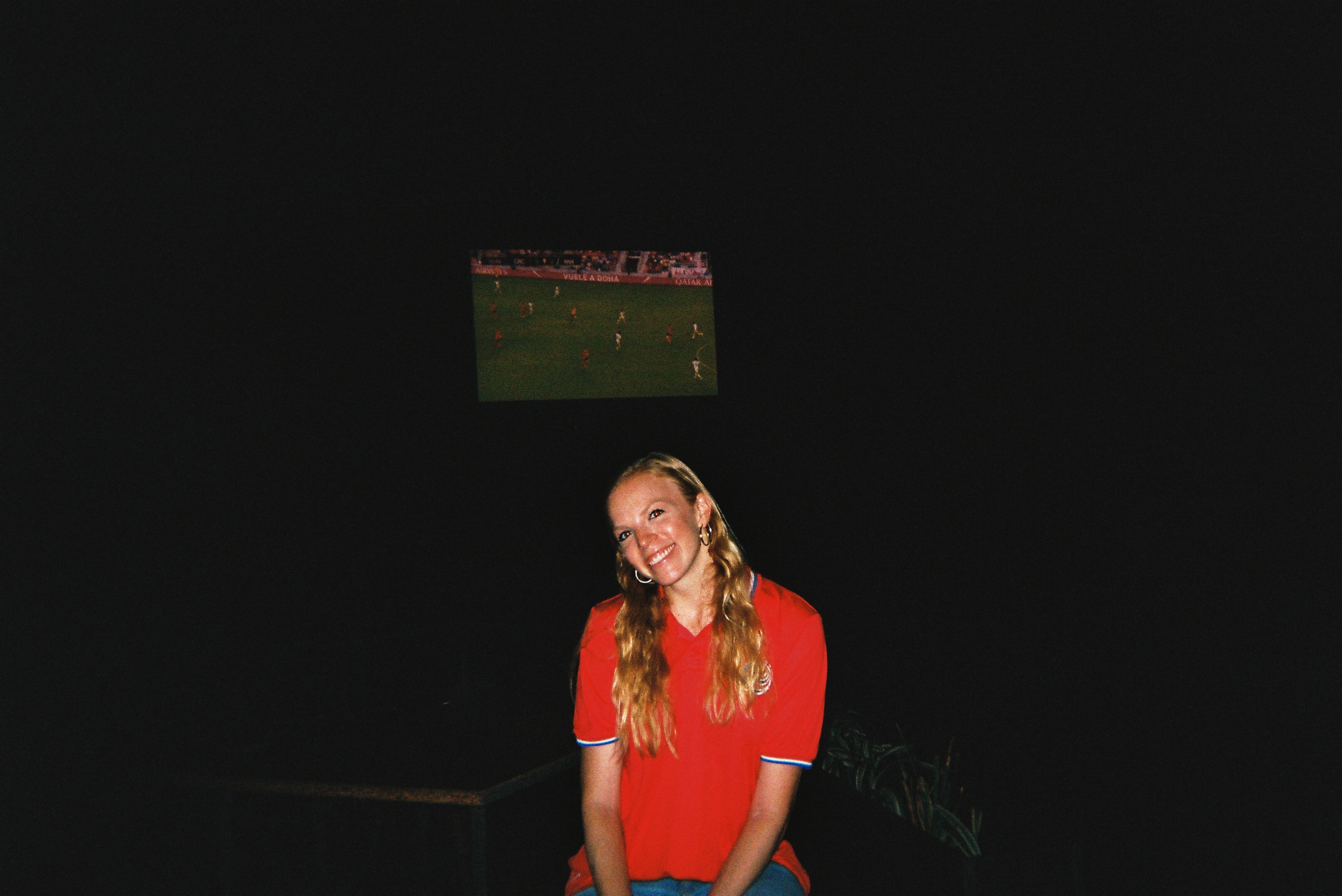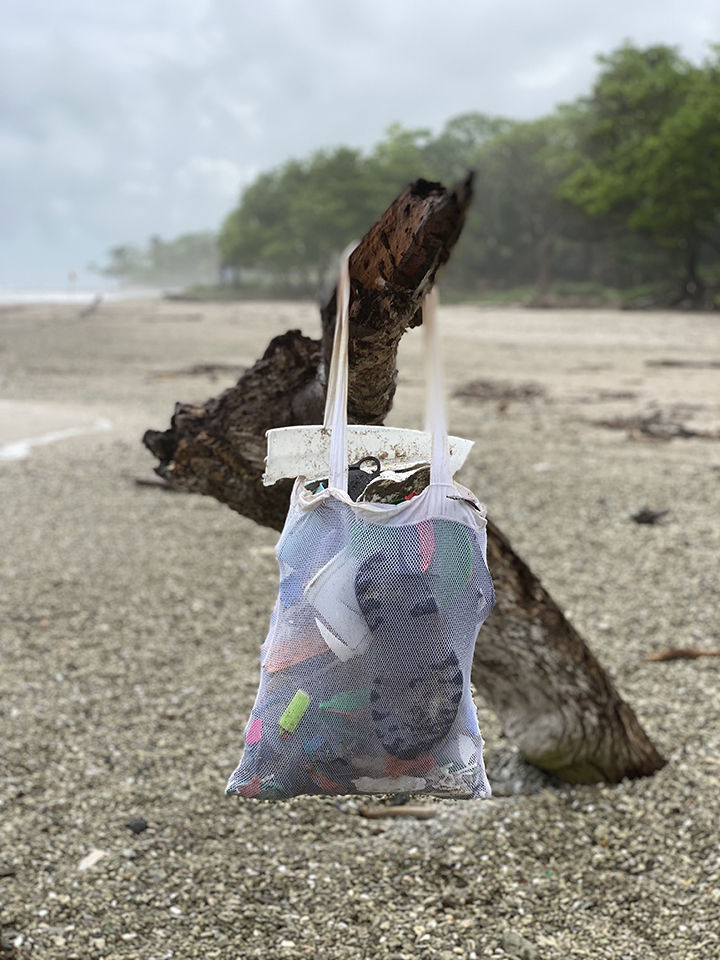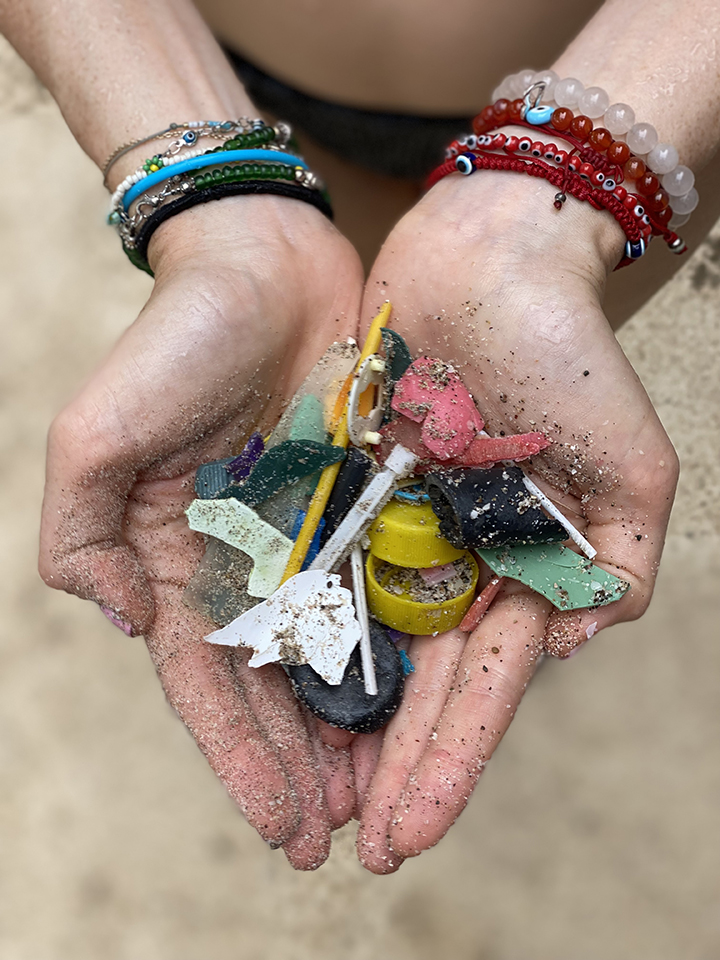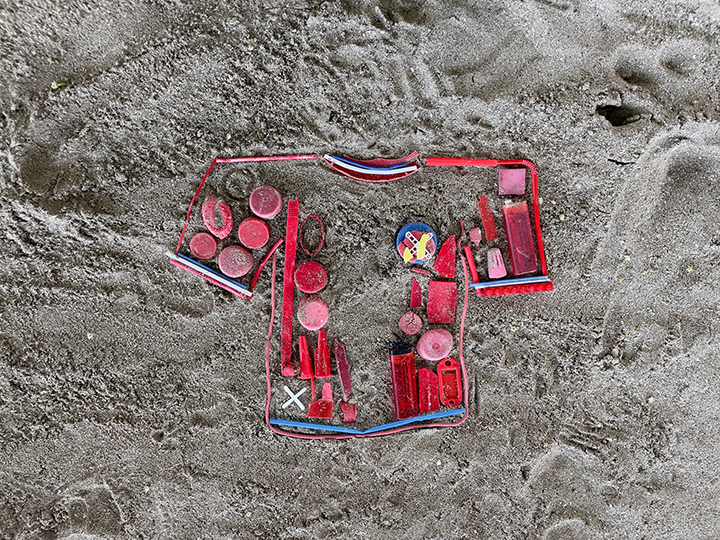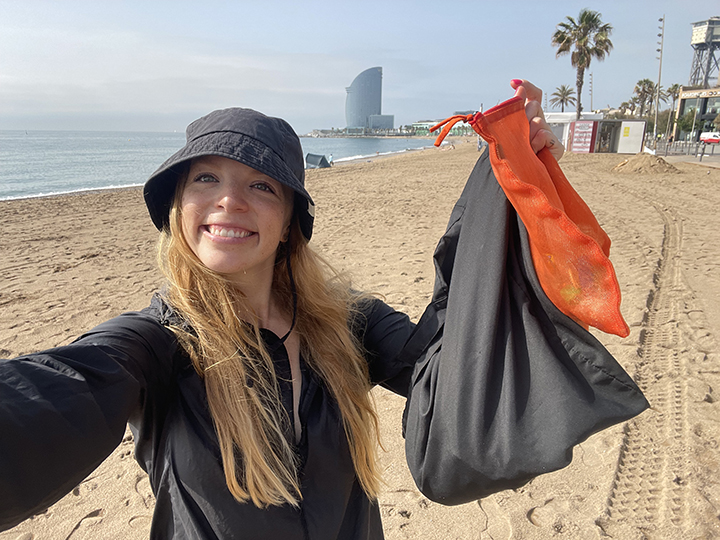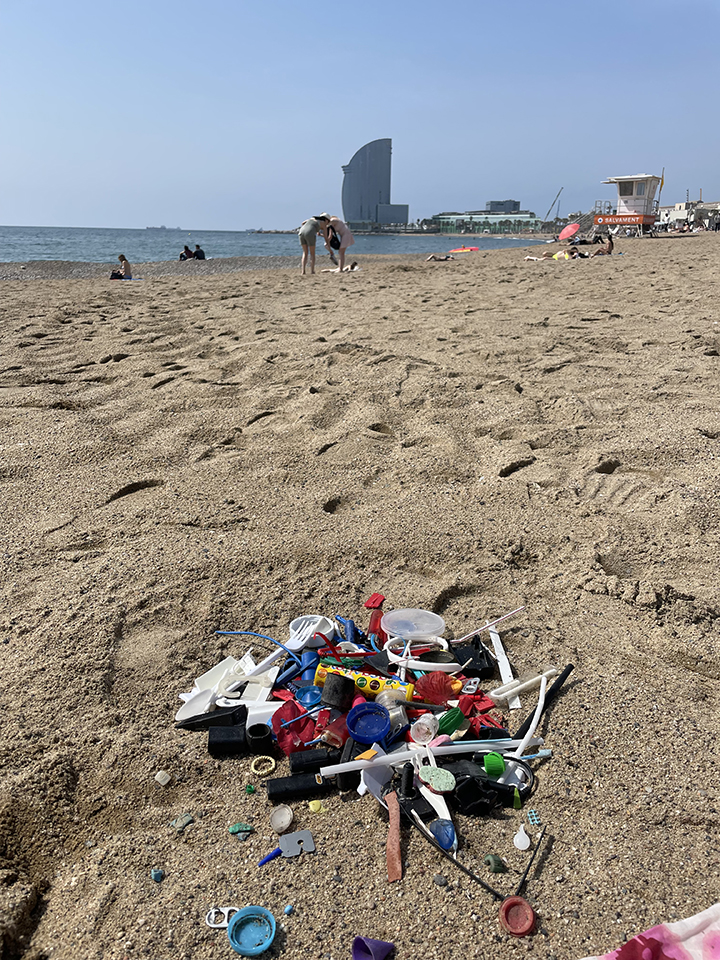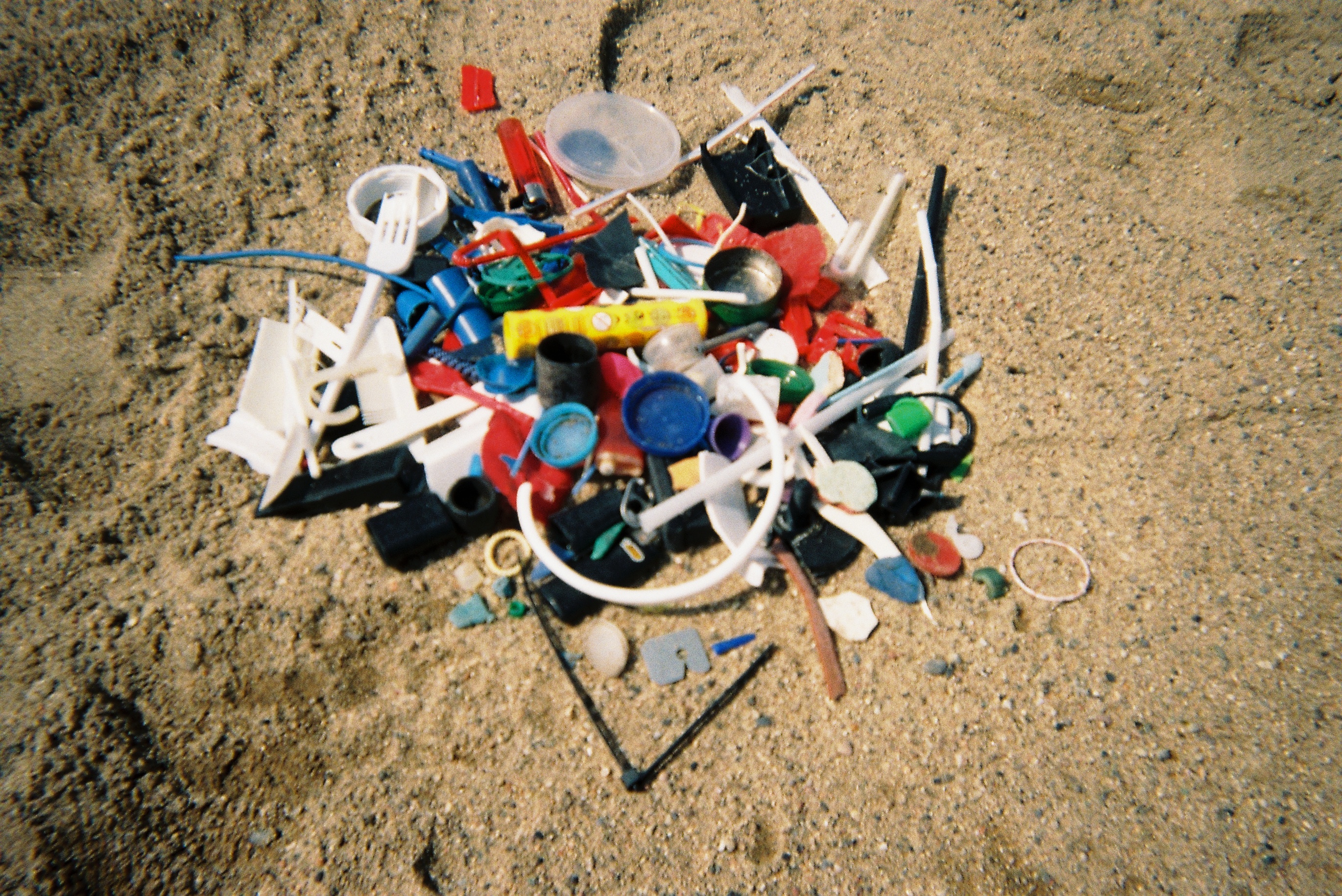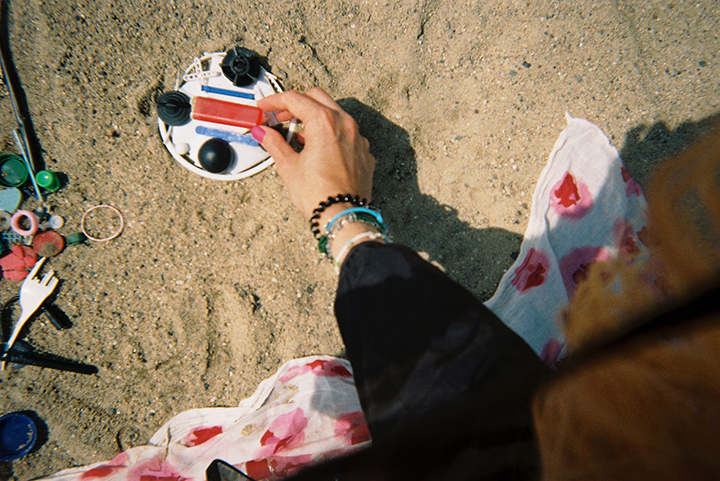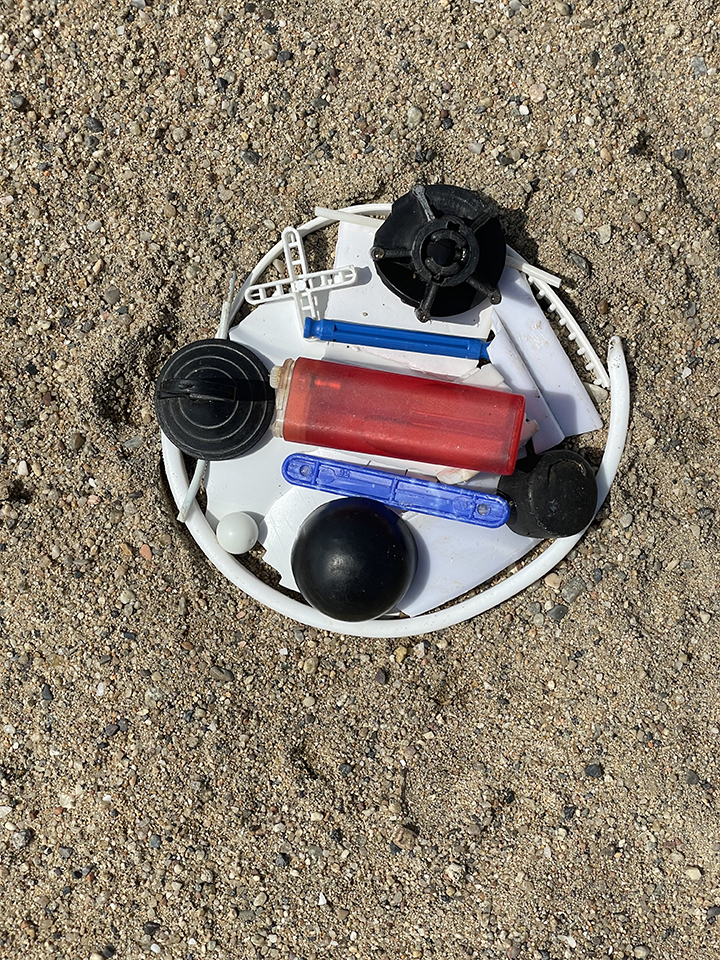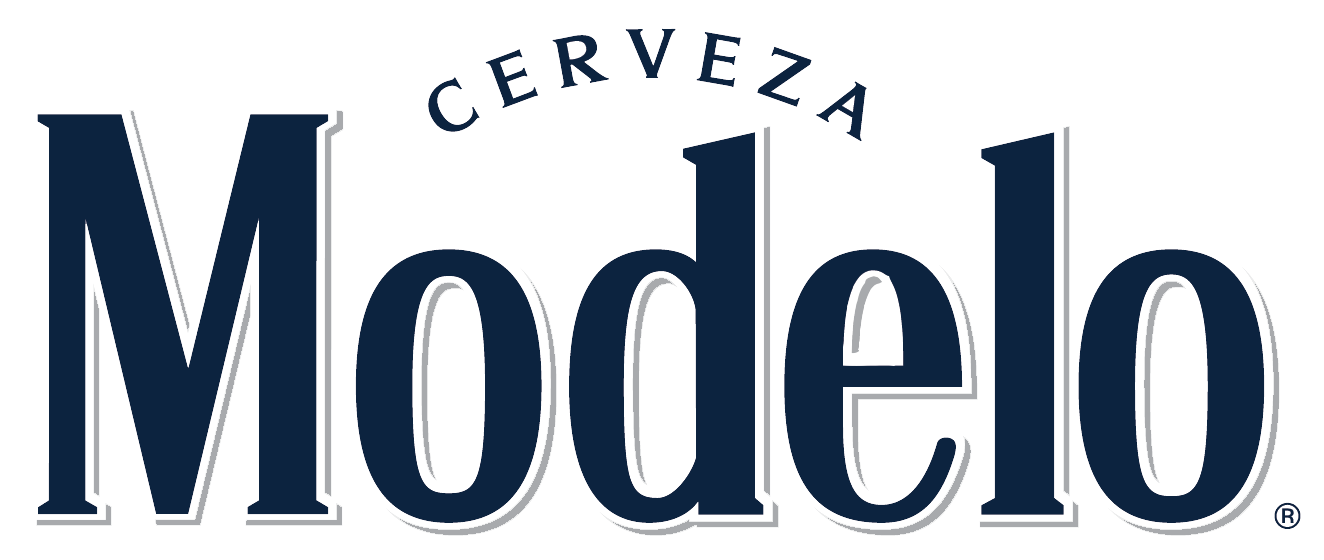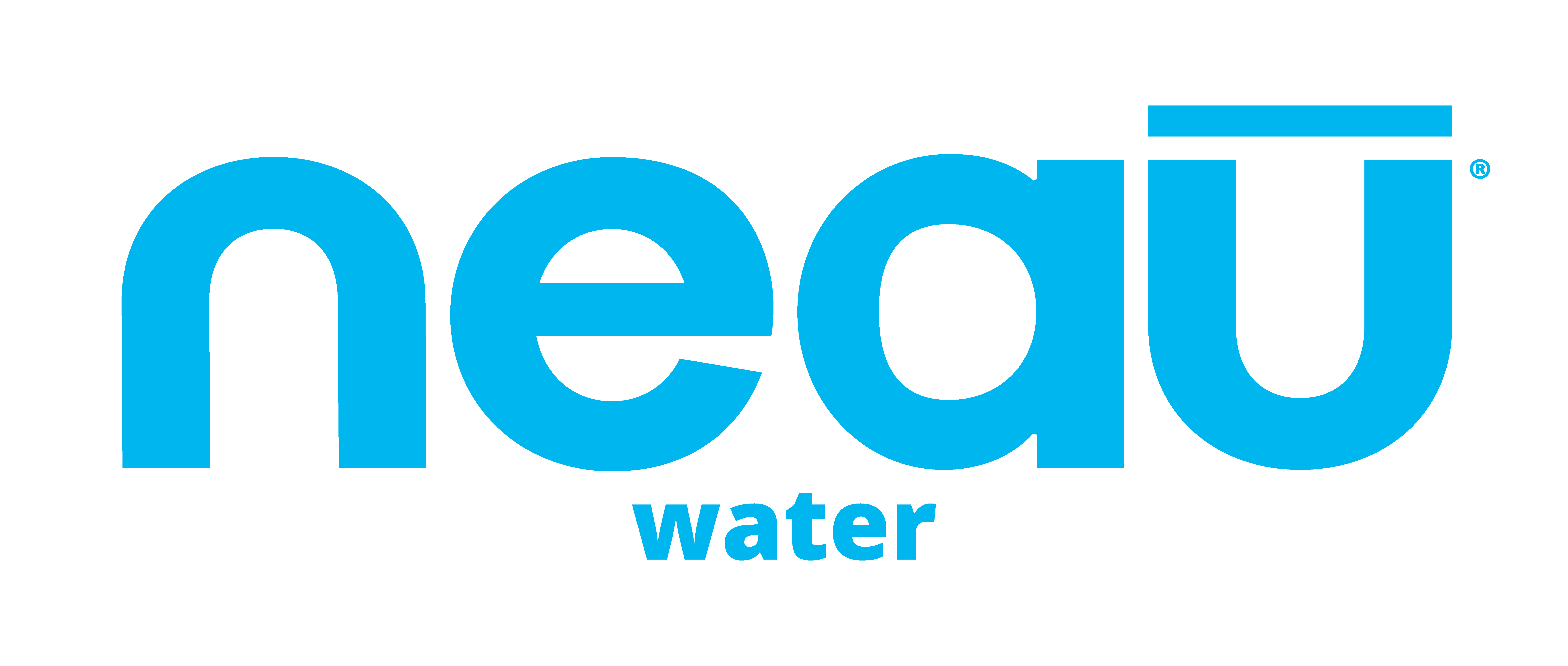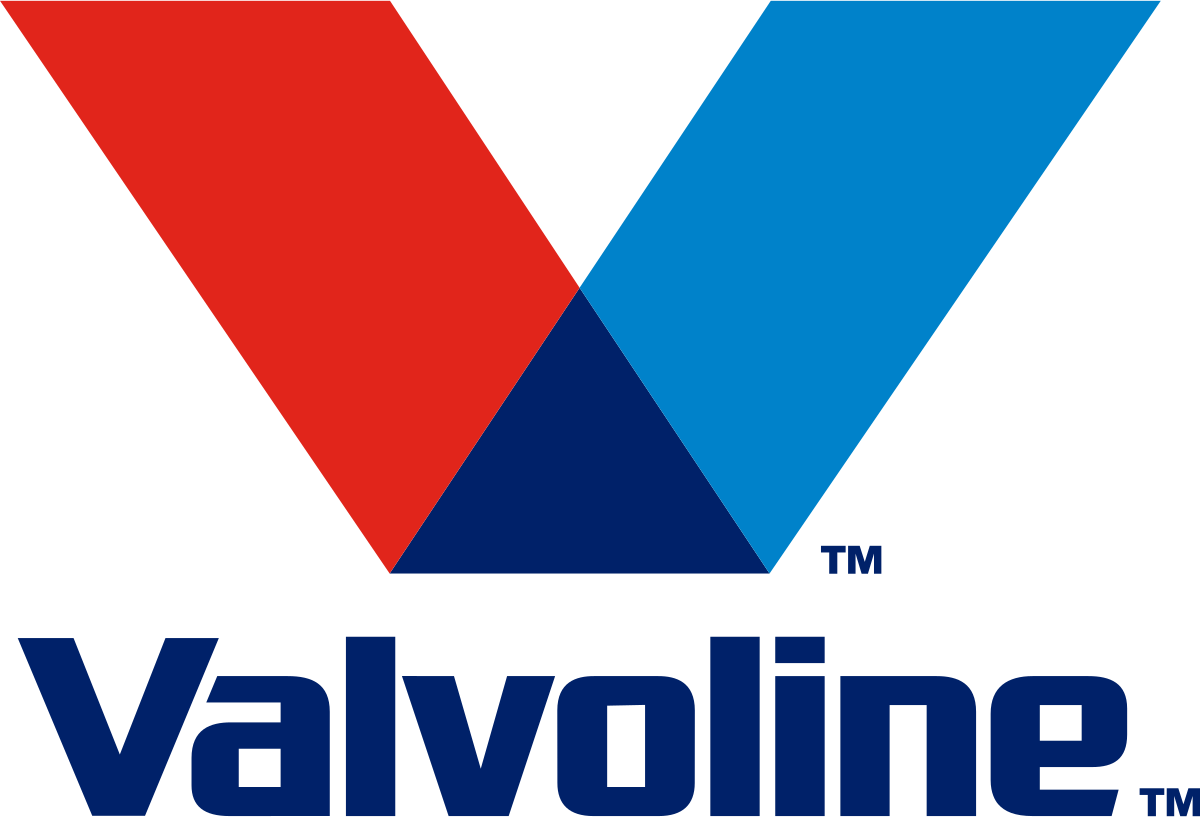My name is Ariela Kader. I am 31, Costa Rican, and a teaching “Artivist” (artist + activist). I was born in San José, Costa Rica. My dad is Costa Rican, and my mom is Mexican. I like to live in the present (figuring it out!) and have been in Barcelona since the summer of 2021.
My favorite team has and will forever be Costa Rica, but in terms of club teams, I always follow Keylor Navas and root for his club team wherever he goes. I used to play football, but now I enjoy watching it with friends either on the TV or by going to the stadium. Football is part of our Costa Rican identity and culture. My brother played football before he was able to walk. It brings the world together even if we are playing against each other.
The Land of Pura Vida
My ancestors migrated from Poland, Russia, and Mexico and ended up in Costa Rica: the land of “Pura Vida”, of no army and free education, home to 5% of the world’s biodiversity, a world leader in ecotourism, and much more. Being Costa Rican means being friendly, kind, and caring with each other and with nature. It means living life to its fullest while “wearing the Costa Rican jersey” with pride and with the responsibility that comes with it, everywhere we go.
As a Costa Rican, football is everything. It is in our genes, together with being environmentally conscious and eco-friendly. It is a huge part of our culture, of our “pura vida” way of living, and our very friendly personality.
In Costa Rica, there is a saying “ponerse la camiseta”, which literally translates to “put the shirt on”. Figuratively, it means to wear it proudly, to embody it, to take action and responsibility. I do not have to live in Costa Rica to feel Costa Rican. I am Costa Rican because I was born there, because it is in my personality, in the way I relate to people and nature, in living the “pura vida” life, in my art when I try to make a difference in the world by cleaning up the oceans, the beaches, and the streets, and in my heart, because it is in my blood, embedded in my DNA. We are one big team: ‘La Sele’.
Fusing Art And Environmentalism
As corny and cliche as it may sound, I did not choose to fuse art and environmentalism, they chose me. It happened when I switched the green for gray and moved from San José, Costa Rica to New York, United States in 2009. At the very beginning, I started photographing different compositions of filled trash bags on the streets without knowing why I was doing it. My phone ran out of memory, so I printed out a selection and taped them on my bedroom wall. After ten days, one composition with five filled trash bags all clustered up made me think of my family, so I titled it “Family Portrait.” That is how the series “Social Trash” was born, illustrating the concept that “we are more what we throw away than what we consume”.
After receiving feedback from a university professor, I took this series to the streets and started writing directly on the trash bags as a way to break with the routines of New York passers-by and hopefully have them reflect on their consuming habits and practices.
I became interested in the materiality of the trash bag and plastic bags in general and began collecting and collaging them as a way to create a “Plastic Portrait”. I worked on this series “Plastic Portraits” in New York City, Berlin, and twelve cities I visited during my year of travel.
During the pandemic, I flew back to Costa Rica. While visiting a beach at a national park, I met my new material of creation: the plastic waste from the beaches and from the oceans that I collected at various beach cleanups. I washed all the collected material and transformed it into artwork by creating compositions and sculptural assemblages.
“If trash is everyone’s problem, then it is also everyone’s resource”.
This has been my message, my motto, and my mantra for the past twelve years. It is what gives my artworks a common conceptual thread as well as a call to action to the viewers to be more proactive, more resourceful, and more conscious citizens of the world.
As a crucial part of my practice, I have also given Trash2Art workshops where I teach different communities around the world how to give their local waste a new life (away from the dumpsters and the oceans) by transforming them into artworks.
Wearing The Jersey
With the photos I took, I tried to capture what it is and means for me to be Costa Rican and a fan of the Costa Rican football team. It is not only about wearing the jersey, literally and metaphorically, but how you wear it and what you do when you wear it. Something that matches very well with the jersey is a smile. That is why I always smile. Because even if the team does not play as we wanted them to, and the final score is not great, a frown will not help.
When I wear the jersey (literally), I go to watch the game somewhere with family or friends, we order food to share and beers or mixed drinks. When I wear the jersey (figuratively), I smile, and I spend time in nature. I protect nature by doing beach cleanups, I create art out of the collected material as a way to give plastic waste a new life away from bins and oceans, and I share it with the world in individual and group exhibitions or online.
I did two beach cleanups, one in Barcelona where I am living and one in Santa Teresa, one of my favorite beaches in Costa Rica and in the world. With the material that I collected at the beach cleanup in Barcelona, I decided to create a composition of a football with the Costa Rican flag. It was a way to illustrate how we “play” (interact, share, connect, exchange) with each other and the world when we as Costa Ricans are living in other parts of the world.
With the material I collected at the beach cleanup in Santa Teresa beach, I decided to create a composition of a Costa Rican jersey and wear my real jersey as a way to illustrate this message about “wearing your Costa Rican jersey proudly” that I keep sharing and standing by - not only when the team is playing, but all the time: by being a good human, helping each other, protecting nature, enjoying the “pure life” (pura vida), and making our country and this world a better place each and every day.
Watching History Being Made
The first important matches where I can recall supporting the national team were in the 2002 FIFA World Cup in Japan and Korea. I would sleep over at a friend’s house, and her dad would wake us up in the middle of the night or very early in the morning to put on our jerseys and watch the match. Then we would go to sleep for a few hours, wake up, and get ready for school. Later on a family vacation at a beach resort in Costa Rica, I met Rolando Fonseca (one of the top players at that time), and I was so starstruck. I remember playing with his wife and one of his kids in the pool.
The highlight of supporting the Costa Rican team was the 2014 FIFA World Cup in Brazil where we made history and got to the quarter-finals for the first time ever. At that time, I was living in New York and luckily I had a lot of Costa Rican friends. We got together to watch the matches and celebrate, but I wanted to teleport myself to Costa Rica so badly. The country was in a 24/7 party. I wish I would have gone to that World Cup. My dad and my brother went, so I lived vicariously through them.
Every time Costa Rica plays, I do my very best to watch it. I support the team by getting together with my Costa Rican friends wherever I am in the world, all wearing our jerseys, picking a pub, restaurant, or someone’s apartment to watch, buying beers and ordering food or preparing some classic and traditional snacks like “frijoles molidos (con lizano) y salsa chunky con chips” (refried red beans with Salsa Lizano, “salsa” and chips). We cheer for the team, catch up and have a great time.
During the Qatar World Cup, I got together with all my Costa Rican friends in Barcelona – believe it or not we are about 20 Costa Ricans here – at a bar or at someone’s apartment to watch Costa Rica play. We make sure everyone knows we are a bunch of Costa Ricans rooting for Costa Rica! Oee oe oe oeeee Ticosss Ticossss!
Dreaming Big
In my career, my ambition is to be a full-time artist and art entrepreneur, clean more beaches and cities, create more artworks, be represented by a gallery, sell my artworks, and impart more Trash2Art workshops and other artistic activities. I want to participate in artist residencies as well as solo and group exhibitions, to continue having more opportunities to share my art and my message with a wider audience, and hopefully inspire them to be more conscious, more creative, and more resourceful in their everyday lives.
Football is a great educational tool: to take kids and youth out of the streets, to keep them healthy, to teach them problem solving and how to deal with conflict in a peaceful way, to dream big and work towards reaching their goals. I would like to see football grow and evolve by using it more and more as an educational and powerful tool for a better future with better citizens.
Quickfire Heritage Questions
What are the words or phrases/sayings that anyone from your country will know?
Pura Vida
Tuanis
Liiiinda mi Sele
Vamos Sele
Una Coca para ese arrollado
Lleve la picsa con la pecsi
Oee oe oe oeeee Ticosss Ticossss
What are the most distinctive landmarks in your country?
Beaches, national parks, rainforests, volcanoes.
What is your country most famous for?
Keylor Navas.
What do you consider your most distinctive food dish?
Casado.
If you could say “these three things symbolize our country and our people”, what would that be?
Keylor Navas, Nature, and Pura Vida.


